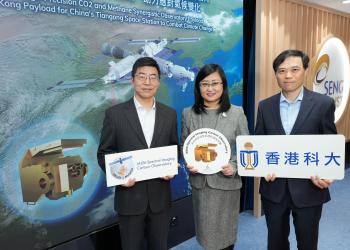News & Stories
2025
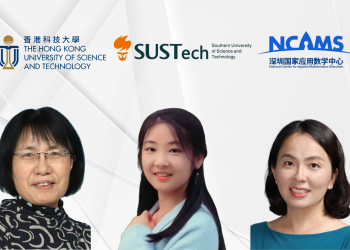
News
HKUST, SUSTech, and NCAMS Researchers Reveal Nitrogen’s Dominant Role in Global Organic Aerosol Absorption
A collaborative research team led by the Hong Kong University of Science and Technology (HKUST), the Southern University of Science and Technology (SUSTech), and the National Center for Applied Mathematics Shenzhen (NCAMS) has introduced a nitrogen-centric framework that explains the light-absorbing effects of atmospheric organic aerosols. Published in Science, this groundbreaking study reveals that nitrogen-containing compounds play a dominant role in the absorption of sunlight by atmospheric organic aerosols worldwide. This discovery signifies a major step towards improving climate models and developing more targeted strategies to mitigate climate impact of airborne particles.
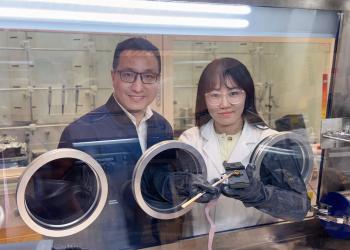
News
HKUST Unveils Critical Nanoscale Phenomena
In a significant advancement for boosting renewable energy generation development, the School of Engineering of the Hong Kong University of Science and Technology (HKUST) has taken the lead in breaking through studies of the nanoscale properties of perovskite solar cells (PSCs). This initiative has resulted in the development of more efficient and durable cells, poised to substantially diminish costs and broaden applications, thereby connecting scientific research with the needs of the business community.
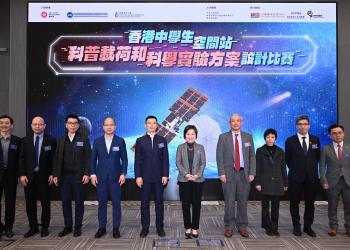
News
HKUST, CAS-TECSU and EDB hold kick-off ceremony and experiment proposal design briefing session for Hong Kong Secondary Student Space Station Popular Science Payload and Science Experiment Design Challenge
The Hong Kong University of Science and Technology (HKUST), the Education Bureau (EDB) and the Technology and Engineering Center for Space Utilization of the Chinese Academy of Sciences (CAS-TECSU) are jointly organizing the Hong Kong Secondary Student Space Station Popular Science Payload and Science Experiment Design Challenge, which encourages student teams to submit scientific experiment design proposals suitable for implementation under space conditions or microgravity. The kick-off ceremony and experiment proposal design briefing session of the challenge were held today (February 25).
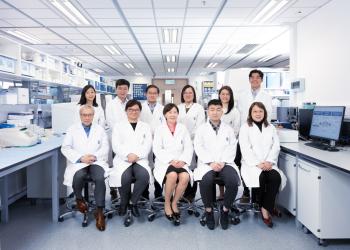
News
HKUST Scientists Identify Alzheimer’s Disease-Protective Genetic Factors and Unravel Disease Mechanisms
An international research team led by the Hong Kong University of Science and Technology (HKUST) has identified key genetic factors that confer protective effects against Alzheimer’s disease (AD) through a comprehensive genetic analysis of East Asian populations, including Chinese and Japanese, as well as European populations. This groundbreaking discovery sheds light on how these genetic factors can exert protective effects, unveiling the biological mechanisms underlying AD pathogenesis.
At a glance:
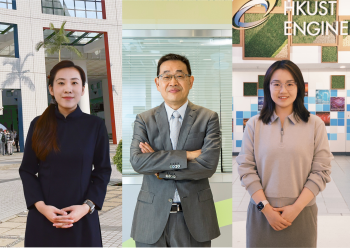
News
HKUST Researchers Introduce World’s First High-Resolution Global Groundwater Sulfate Distribution Map Uncovering Public Health Risks
A recent study by the Hong Kong University of Science and Technology (HKUST) has revealed a startling public health threat: About 17 million people are at risk of gastrointestinal problems due to excessive sulfate levels in groundwater. This alarming finding emerged from the world’s first high-resolution global groundwater sulfate distribution map, launched by the university’s School of Engineering.
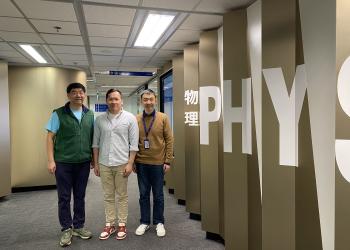
News
HKUST Researcher Unveiling the Uncharted Reaction Pathways of Carbon Dioxide in Supercritical Water
A research team led by Associate Professor Ding PAN from the Department of Physics and the Department of Chemistry at the Hong Kong University of Science and Technology (HKUST), in collaboration with Prof. Yuan Yao from the Department of Mathematics, has made significant discoveries regarding the complex reaction mechanisms of carbon dioxide (CO₂) in supercritical water. These findings are crucial for understanding the molecular mechanisms of CO₂ mineralization and sequestration in nature and engineering, as well as the deep carbon cycle within the Earth's interior.
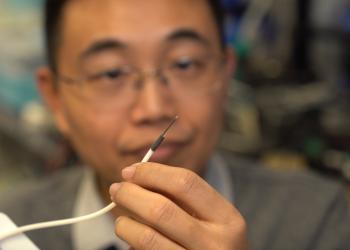
News
HKUST Develops World’s Smallest Multifunctional Biomedical Robot for Interventional Diagnosis and Treatment
Researchers from the School of Engineering of the Hong Kong University of Science and Technology (HKUST) have successfully developed the world’s smallest multifunctional biomedical robot, which is 60% smaller than current models. Capable of imaging, high-precision motion, and multifunctional operations like sampling, drug delivery, and laser ablation, the robot offers competitive imaging performance and a tenfold improvement in obstacle detection, paving the way for robotic applications in narrow and challenging channels of the human body, such as the lung’s end bronchi and the oviducts.







